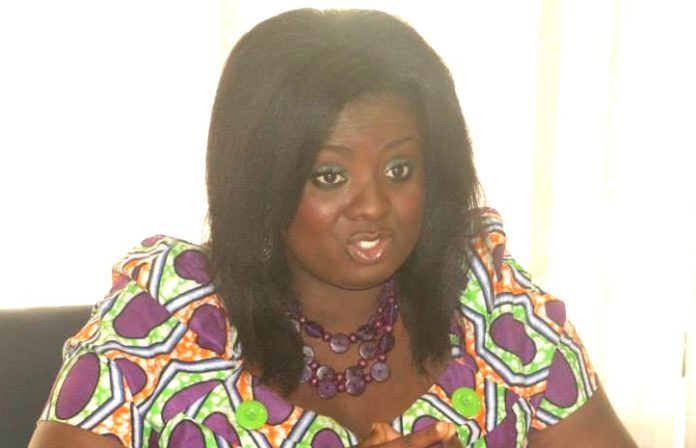
A former Deputy Minister for Communications, Victoria Hamah, is advocating for more women to be elected as Members of Parliament(MPs).
This, she explained, will help accelerate Ghana’s vision to achieve gender equality as the world marks International Women’s Day.
Ms. Hamah, who is also the founder of the Progressive Organisation for Women’s Advancement, said there has not been fair gender distribution of political power since Ghana’s independence, a situation she stressed “betrays the logic of any real commitment to gender equality.”
As an immediate measure, the former Deputy Minister in a statement called on the electorate to “elect 30 percent women into Parliament as a first step to demonstrate commitment to Gender Equality.”
Below is her full statement:
Elect 30 percent women into Parliament as a first step to demonstrate commitment to Gender Equality – Victoria Lakshmi Hamah
The progressive Organisation for Women’s Advancement (POWA) joins the global community to commemorate the International Women’s Day observed annually on the 8th of March – a day to reflect on the struggles by women and progressive societies to achieve a world of gender equality and equity.
This year’s theme: “I am Generation Equality: Realizing Women’s Rights” is very apt as it mobilizes all groups irrespective of vertical and horizontal differences to the collective cause of attaining a gender-equal society.
Such a historical and globally significant day should offer a reflective opportunity for us as Ghanaians to engage in an inclusive discourse to find pragmatic ways to achieve a gender equal society.
The just celebrated 6th March marked our 63rd year of political and economic independence, a milestone that was supposed to achieve social justice for every citizen of Ghana.
It is obvious that the vision that inspired the activism of our founding patriots are yet to materialize in every facet of life for the Ghanaian woman. This deviation underscores the discernible consequence of the asymmetrical social, political, economic and gender power relations between Ghanaian men and women.
Trend analysis of gender distribution of political power since independence betrays the logic of any real commitment to gender equality and same can be related to the private capital ratio between men and women.
Although some marginal gains have been made to bridging the gender imbalance through policies and programmes including the just ended Millennium Development Goals (MDG’s) and now Sustainable Development Goals (SDG’s), real change will require a depoliticization of the need for Affirmative Action and approaching gender equality as fundamental to the integrity of our constitutional democracy.
Gender equality is only achievable when as a people we translate women’s right to mean human right.
Women’s power is people’s power!
#GenerationEquality #internationalwomensday #IWD #POWA
